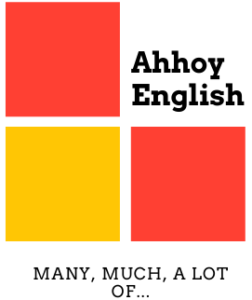
GREAT IN NUMBER
many – always with countable nouns (many cars, firends, etc.)
much – always with uncountable nouns (much work, much snow, etc.)
a lot of / lots of – can be used with both countable and uncountable nouns
plenty of – can be used with both countable and uncountable nouns
We have to read many books.
Do they have many friends there?
There is not much work to do.
She doesn’t have much money.
The teacher gave us lots of homework.
He ate a lot of pies yesterday.
We have plenty of toys here.
Note:
Many and much are mostly used in negative sentences and questions.
I don’t have much free time.
Do you have many friends in the United States?
SMALL IN NUMBER
few – always with countable nouns (few houses, books, etc.)
Few people in Poland are interested in baseball.
There are few people who are as intelligent as she is.
little – always with uncountable nouns (little time, milk, etc.)
I had little money when I was a student.
We will have little time to get there.
a few – always with countable nouns
There are not many students studying maths this semester. Just a few.
There are a few seats left on the train.
a little – always with uncountable nouns
There is still a little water if you want to have a glass.
Do you have a little time?
fewer – always with countable nouns
The hotel is almost empty. Fewer people are travelling to our town this year.
There are fewer cars on the road because petrol is expensive.
less – always with uncountable nouns
He has less money to spend since he lost his job.
You need to spend less time talking to your friends on the phone and more time studying.
more – can be used for both countable and uncountable nouns (more time, more friends)
There are more good restaurants in Paris than in London.
I would visit her if I had more time.
© Simple English News™ / Ahhoy.net
